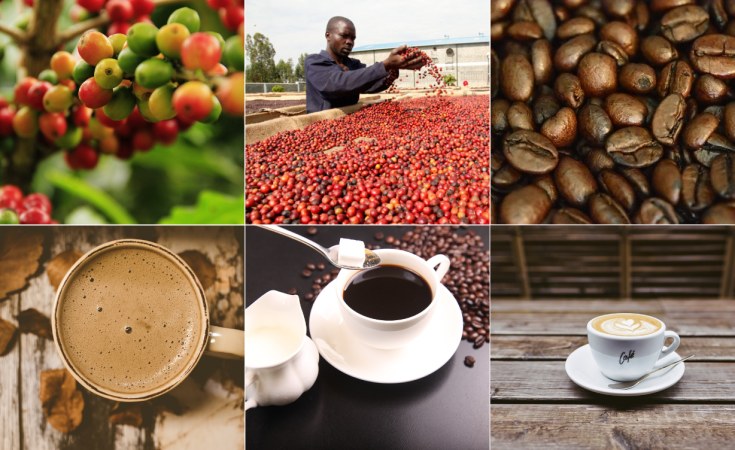There is a need for coping strategies aimed at limiting the adverse effects unleashed by climate change on coffee producers, Geraldine Mukeshimana, the Minister of Agriculture and Animal Resources said.
The call was made while opening the third World Coffee Producers Forum (WCPF), taking place in Kigali from February 13 to February 14, with the aim to tackle and find solutions to pressing issues being faced by global coffee producers.
The forum brought together more than 1,000 delegates from Africa, Asia, and South America-the main coffee producers.
"Coffee production is adversely impacted by climate change, putting the global coffee industry at grave risk. Therefore, governments and policy-related bodies need to set up coping strategies aimed at limiting the adverse effects unleashed by climate change," she said.
Mukeshimana said that the varieties of coffee in coffee-growing regions are all impacted by cyclical climate change, which results not only in the introduction of new types of diseases and pests.
ALSO READ: Climate change could spell disaster for coffee production in Africa - experts
"Coffee does not, by itself, guarantee the millions of farmers farming coffee a decent living and a prosperous future...coffee farmers still struggle to attain a fair share of the industry's earning," Mukeshimana said, adding that in many places coffee producers cannot even cover their cost of production for increased profits.
In Rwanda, over 400,000 households working on 39,844 hectares of land, grow coffee and make it a great contributor to the family income.
ALSO READ: Rwandan coffee brands among 'most popular' in China
Mukeshimana made the case for fostering public-private cooperation among stakeholders and expanding the number of wet mills or coffee washing stations.
Improving the skill set of coffee farmers, raising their coffee production standards, and ensuring that farmers get paid fairly is among the recommended interventions.
The CEO of National Agricultural Export Development Board (NAEB), Claude Bizimana said: "This forum is considered a success for two reasons. It is the opportunity to meet and bring the world together in Kigali after the Covid-19 pandemic. Most importantly, it is the time for us to meet and to discuss pressing issues that affect coffee producers such as sustainability and climate change."
Rwanda consumes an estimated 3 per cent of the coffee produced in the country and exports 97 per cent and NAEB said local consumption is expected to increase.
"At least 60 per cent of coffee production in Ethiopia remains and gets consumed by its locals. We are devising different strategies such as scaling up many coffee shops across the country to increase local coffee consumption. These shops will also increase off-farm jobs.
We have to increase coffee processing factories and their production capacity in the country," he said.
Bizimana said that besides subsidies on fertilizers, and pesticides, NAEB will continue to tap into different international markets especially for roasted coffee to ensure local producers get fair prices from both local consumption and export markets.
Between January and December 2022, Rwanda earned $99.7 million from coffee exports.
The President of the Colombian Coffee Federation who also doubles as Chairperson of the World Coffee Producers Forum (WCPF Juan Esteban Orduz emphasized that the main objective of this forum is to bring together coffee producers, industry leaders, economists, and analysts, to assess and address barriers that hinder the development of the coffee industry, but particularly, coffee farmers.
"The coffee value chain actors need to work together under the principles of co-responsibility and solidarity to ensure sustainable coffee production," he said.
Farmers' expectations
Coffee farmers from different districts have called for more support to be able to earn a decent living.
"The challenge is that coffee production is still low yet prices are also not satisfactory yet invest a lot of effort in growing coffee. It requires many inputs and workforce, meaning profits are low for smallholder farmers," said Beatrice Murekatete, a coffee farmer who has 2,000 coffee trees in Nyamasheke district.
ALSO READ: Coffee farmers seek govt support amid falling prices
Jean Berchmas Nyirimbaraga, a coffee farmer with 1,500 coffee trees in Ngororero district, reiterated that low prices per cherry coffee is derailing coffee farmers' efforts.
"This year we got Rwf500, 000 per Kilogramme for the first time. The fair price should be Rwf1, 000 and above so that we get capital to invest in coffee growing," he said.


